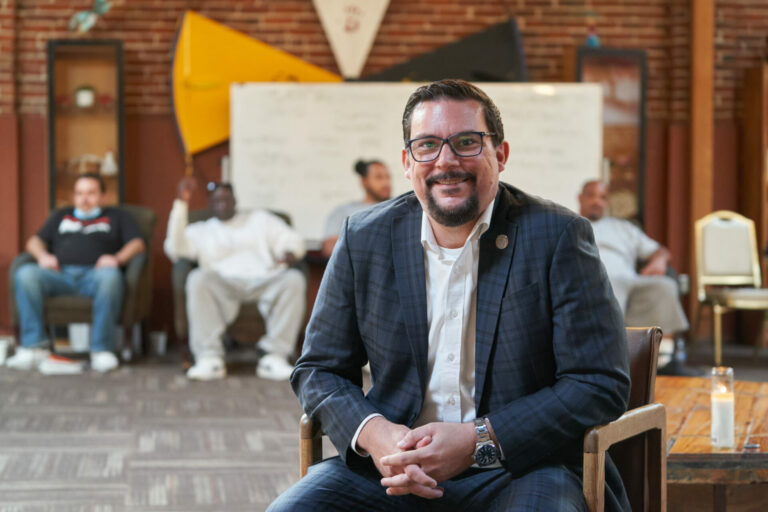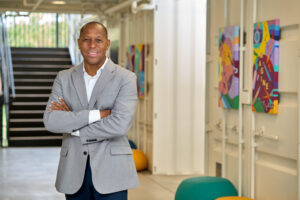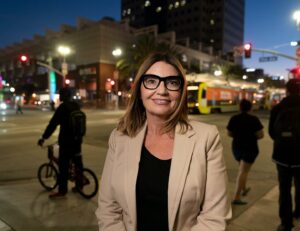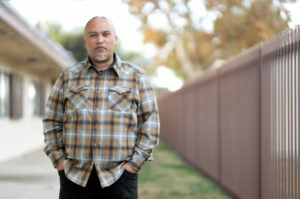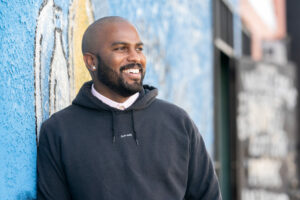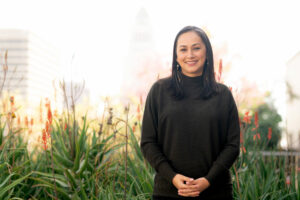Doug Bond is the President & CEO of Amity Foundation, an organization that is dedicated to improving the health and promoting the environmental, social, and economic justice of marginalized people. Doug’s inquiry focuses on how Los Angeles can better respond to the needs of individuals returning from incarceration.
Fellowship Summary
Journey’s Start: My life and several generations of my family have been impacted by addiction, trauma, and incarceration. So many people have been harmed and there has been a multigenerational impact to our community from these environments, which I have experienced firsthand. My inquiry started with looking at community-based alternatives to incarceration, but grew beyond that to encompass both front-end work for prevention and support for people returning home from incarceration. My journey started with looking at more human models of healing rather than incarceration that centered around the built environment, human-centered approaches to healing trauma, employment, housing, and culture. This experience became part of a larger effort that I was tasked with by the Governor to chair an advisory committee to work on culture change and services needed in one of the Country’s most notorious prisons, San Quentin, and be an example to the larger transformation as part of the “California Model.” I was able to confirm my assumptions that collaboration between multiple government agencies, community-based organizations, and our community as a whole working together in support of public health and public safety is how we can transform our communities to become safer places for healing. We often think about public safety as a law enforcement response, but it is truly one that can be accomplished by many of the programs
The Now: Where I stand today is working to implement much of what I learned during the inquiry and navigating a very difficult political and policy environment. While California remains invested in this, many of the political justice reforms that lead to this inquiry have been rolled back with the fear of the pendulum swinging the other way to more tough-on-crime policy. The work that I have been working on with so many others remains an approach that seems to not be caught up in the political climate and seems to be a bipartisan approach, which makes me pleased to see given the times we are in. My self-care has been tremendously improved because of this life-changing fellowship, and the way in which I look at challenges and solutions has been shaped by this experience.
This experience has been one that not only made me a better leader, but a better person in general. My work/life balance has improved, and the relationships in my life have also been forever changed by the Stanton Fellowship. I am humbled and honored to have had this time to look at the mission that I am so passionate about, while learning about the importance of so many other important areas for our community.
Moving Forward: The road ahead is one of caution and optimism. We must find ways to appeal to all sides of the issue of public safety from a position of healing and community. We as a community are working to build more community reentry campuses where people can find a safe place to return to our community. We are also looking at building more places like this as an alternative to incarceration, which gives me hope. People who have these community reentry healing campuses will have the conditions they need to be successful, our communities will be healthier and safer, and the research continues to support that.
